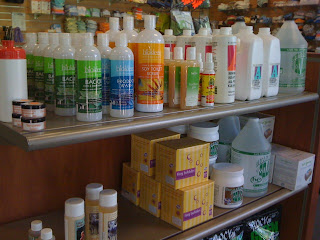 Have you heard of Soap Nuts? I know, it sounds totally, well, nuts, to wash your diapers (and the rest of your clothes too!) with a dried fruit! But these aren't your average nut.
Have you heard of Soap Nuts? I know, it sounds totally, well, nuts, to wash your diapers (and the rest of your clothes too!) with a dried fruit! But these aren't your average nut.Soap Nuts are an all natural, sustainable alternative to detergent. The dried fruit of the Chinese soapberry tree contains a surfactant called saponin that lifts stains and actually suds up (see photo!). They are high efficiency safe, don't build up in your diapers or require extra rinses in the wash, and are naturally hypoallergenic.

Soap Nuts are also extremely affordable. We sell them in 2 pound bags for $28.00. Each bag contains roughly 200 Soap Nuts. If you're using 4 nuts per wash and reusing them four times, that makes each load only .14 cents! For cloth diapering families who do a LOT of laundry, Soap Nuts are among the most cost effective methods.

To use: Based on size and level of dirtiness of the load of wash, place 2 - 4 soap nuts in the (included) small muslin bag and throw it in the washing machine with your dirty laundry. Remove bag before transferring load to dryer. Soap nuts can be reused up to 4 times or until they get soft and lose their natural vinegar scent. Used soap nuts are compostable. Some people even make jewelry out of the almost perfectly spherical pit inside each nut!
To make a concentrated liquid cleaner, boil 5 soap nuts in 3 cups of water until soft. Pit and place the softened fruit in the blender with 1/4 cup of water from pot. Blend thoroughly. Strain through cheese cloth into storage container. Add enough water from the pot to make two cups of cleaning solution. Store in refrigerator and use within two weeks since it doesn't have any preservatives and will spoil if left out.
























.JPG)

